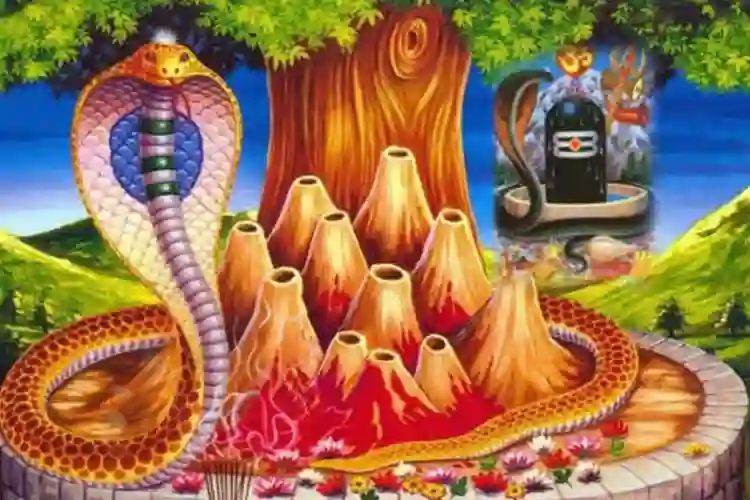Nagpanchami: Celebrating the Serpent Deity in Hindu Tradition
Introduction
In the rich tapestry of Hindu festivals, Nagpanchami stands out as a unique celebration that venerates the serpent deity, symbolizing both fear and reverence. This ancient festival, observed across India and other parts of South Asia, showcases the complex relationship between humans and these mysterious creatures. Join us as we explore the significance, rituals, and cultural aspects of Nagpanchami.
The Origins and Significance
Nagpanchami is a Hindu festival dedicated to worshiping snakes, especially cobras. It falls on the fifth day (Panchami) of the bright half (Shukla Paksha) of the lunar month of Shravana. According to Hindu mythology, snakes are considered divine creatures, often associated with Lord Shiva and Lord Vishnu.
The festival's origins can be traced back to various ancient texts, including the Puranas and scriptures like the Mahabharata. Snakes hold a prominent place in Hindu symbolism, representing both danger and protection, death and rebirth. Nagpanchami serves as a day to honor these contradictory aspects and seek blessings for harmony and well-being.
Rituals and Observances
1. Snake Worship: On Nagpanchami, people perform special rituals and offer prayers to images or representations of snakes. In some regions, live cobras are bathed in milk, adorned with flowers, and offered vermillion, turmeric, and sweetmeats.
2. Drawing Snake Images: Families often draw snake images on walls using a mixture of cow dung and turmeric. This practice is believed to protect homes from snake bites.
3. Offerings and Prayers: Devotees visit temples dedicated to snake deities, such as Mannarasala Sree Nagaraja Temple in Kerala or Hardevja Temple in Rajasthan. They offer milk, rice, flowers, and other offerings to seek the blessings of the serpent gods.
4. Fasting and Observance: Some people observe a partial fast on Nagpanchami, refraining from eating anything prepared with milk. This observance is particularly common in Maharashtra.
5. Folklore and Stories: Various legends are associated with Nagpanchami. One of the most popular stories is that of a farmer accidentally killing a snake and later witnessing its family take revenge. This narrative highlights the importance of treating all creatures with respect.
Cultural Aspects
Nagpanchami showcases the deep connection between nature and spirituality in Hindu culture. Snakes, often feared for their venomous nature, are elevated to a divine status, underscoring the belief that every living being has a role to play in the cosmic order. The festival also emphasizes the cyclical nature of life, with snakes shedding their skin symbolizing renewal and rebirth.
Conclusion
Nagpanchami, a festival of both awe and reverence, celebrates the enigmatic serpent deity in Hindu tradition. It highlights the intricate relationship between humans and the natural world, showcasing the blend of fear, respect, and spirituality. As devotees offer their prayers and seek the blessings of the serpent gods, they also reflect on the profound interconnectedness of all living beings.

Comments
Post a Comment